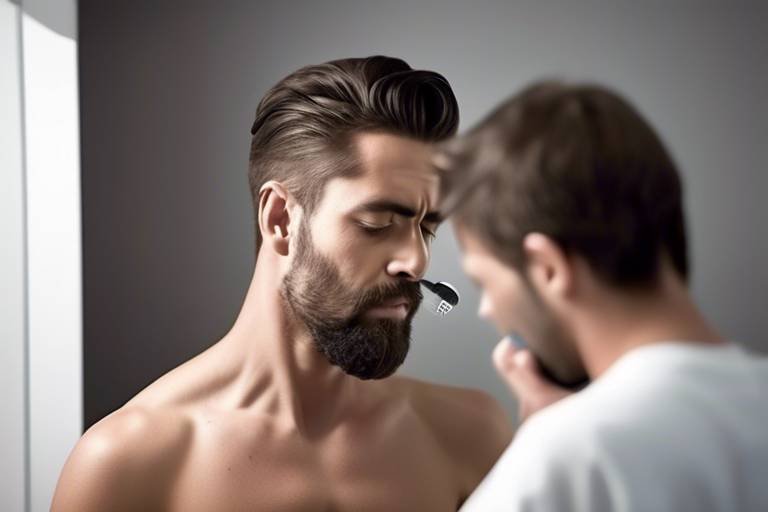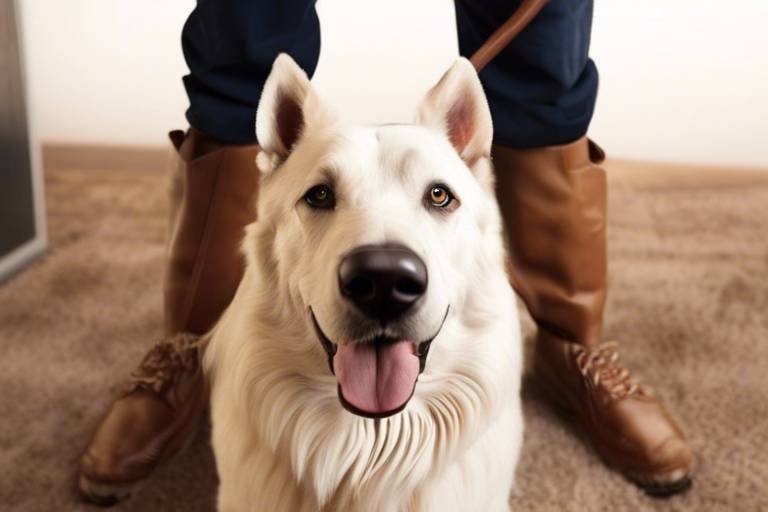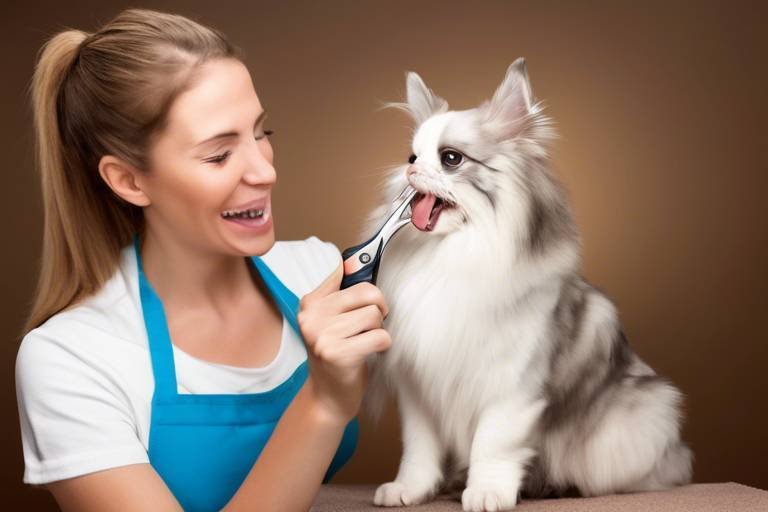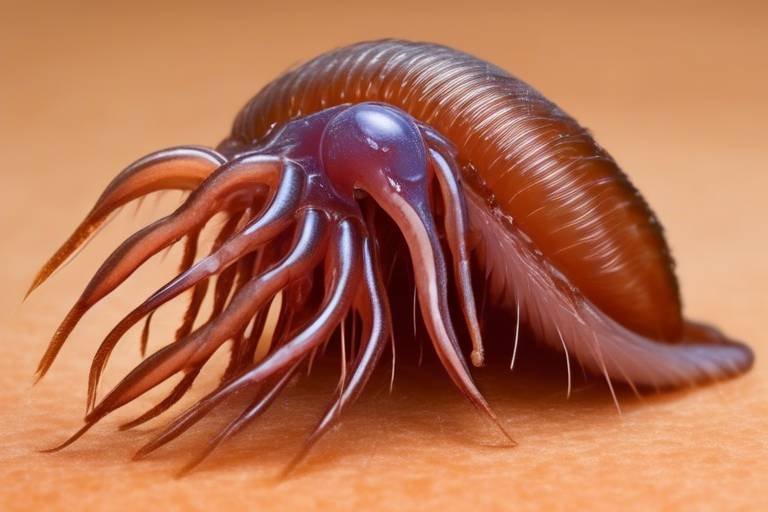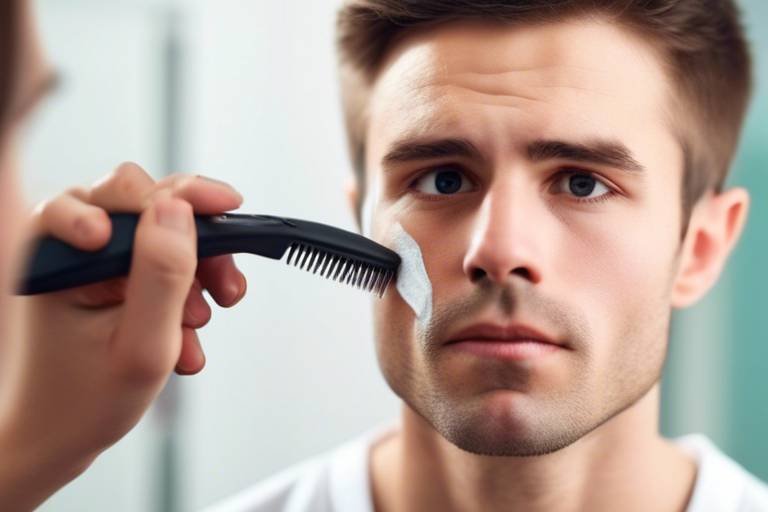The Benefits of Regular Dental Cleanings for Pets
When it comes to our furry friends, we often think about their diet, exercise, and overall health, but how often do we consider their dental hygiene? Just like humans, pets can suffer from a variety of dental issues that can lead to serious health complications if left untreated. Regular dental cleanings are not just a luxury; they are a vital component of your pet's overall health and well-being. In this article, we will delve into the myriad benefits of maintaining your pet's oral hygiene through regular dental cleanings, ensuring they lead a happy and healthy life.
So, why should you prioritize dental cleanings for your pet? First and foremost, preventative care is key. By taking your pet to the veterinarian for regular cleanings, you are not only removing plaque and tartar buildup but also catching potential problems before they escalate. Think of it as a routine check-up for your pet's mouth, much like you would for your own health. This proactive approach can save you and your pet from painful procedures and hefty veterinary bills down the line.
Moreover, dental cleanings can significantly improve your pet's quality of life. Imagine living with constant pain or discomfort—it's not a pleasant thought! Regular cleanings can help prevent periodontal disease, which can lead to tooth loss and even infections that can spread to other organs, such as the heart and kidneys. By keeping your pet's mouth healthy, you're also protecting their overall health.
Additionally, regular dental cleanings can enhance your pet's breath. Nobody enjoys being greeted by a foul-smelling mouth, and pets are no exception. Bad breath, or halitosis, is often a sign of underlying dental issues. By ensuring your pet receives professional dental care, you can help them maintain fresh breath, which is a win-win for both you and your furry companion.
Lastly, let’s not forget about the bond you share with your pet. Regular dental visits can lead to a happier, healthier pet, which means more cuddles, playtime, and love to share. After all, a content pet is a joy to be around, and by investing in their dental health, you're investing in your relationship with them.
In summary, the benefits of regular dental cleanings for pets are numerous and significant. They not only help prevent serious health issues but also improve your pet's quality of life and strengthen your bond. So, the next time you think about your pet's health, don’t overlook their teeth! Schedule that dental cleaning and give your furry friend the gift of a healthy smile.
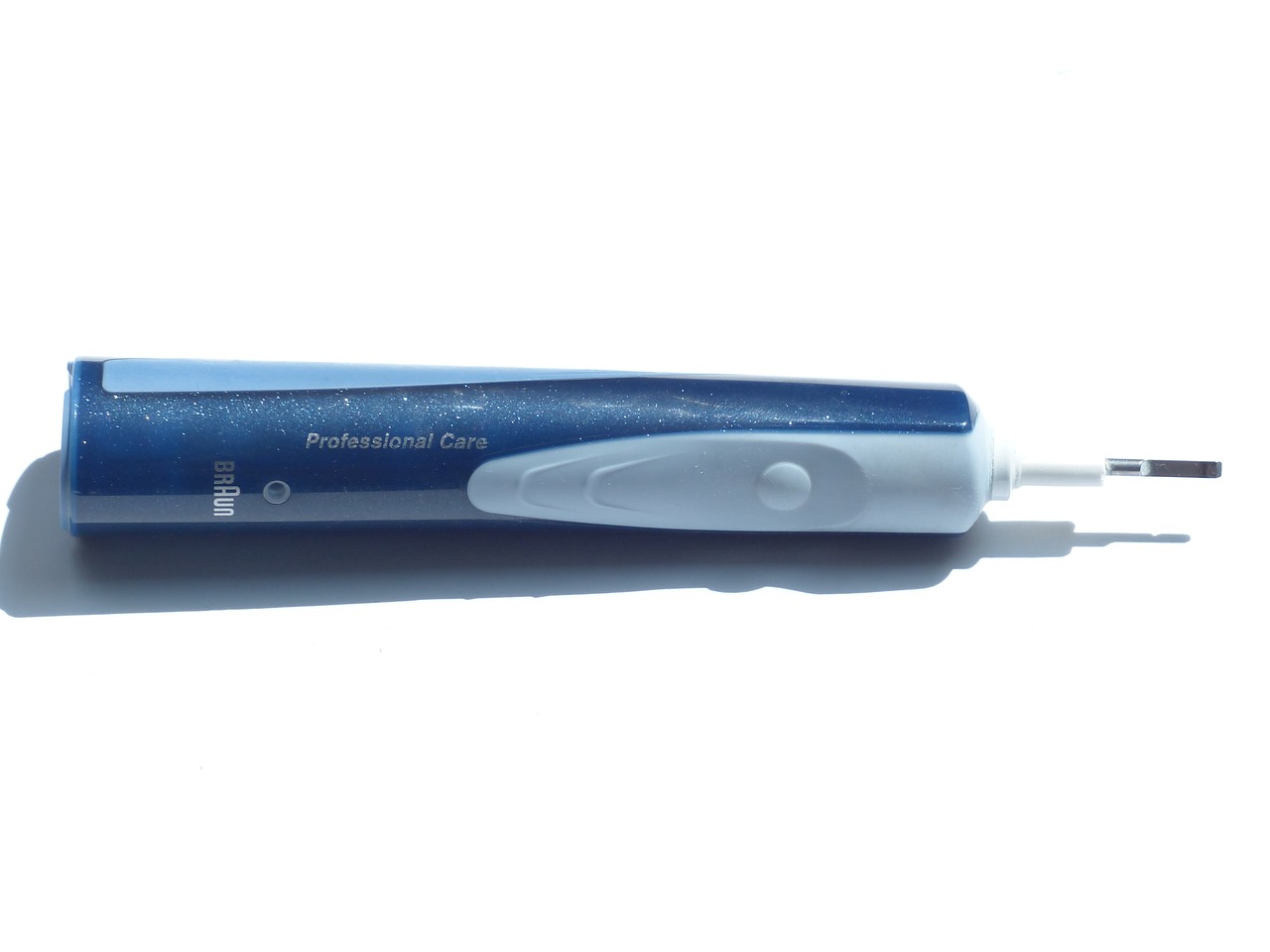
Understanding Pet Dental Health
Dental health is a vital aspect of your pet's overall well-being, yet it's often overlooked. Just like humans, pets can suffer from a variety of dental issues that can lead to serious health problems if not addressed. Poor oral hygiene can pave the way for conditions such as periodontal disease, tooth decay, and even systemic infections that may affect vital organs like the heart and kidneys. Imagine if you never brushed your teeth—yikes! The same goes for our furry friends.
Common dental problems in pets include:
- Periodontal Disease: This is the most prevalent dental issue in pets, caused by the accumulation of plaque and tartar. It can lead to gum inflammation, tooth loss, and severe pain.
- Tooth Decay: Just like humans, pets can develop cavities that can lead to infections if not treated promptly.
- Oral Tumors: While less common, tumors can develop in the mouth and may require surgical intervention.
Regular check-ups with your veterinarian are essential for maintaining your pet's dental health. During these visits, professionals can assess your pet's oral condition, perform cleanings, and provide guidance on at-home care. It’s crucial to recognize that dental health is not just about keeping your pet's breath fresh; it’s about preventing serious health issues that can arise from neglect. Think of it as a preventative measure—just like you wouldn't skip your own dental check-ups.
In conclusion, understanding pet dental health involves recognizing the potential issues that can arise and taking proactive steps to ensure your furry companion maintains a healthy mouth. The next time you snuggle with your pet, remember that their dental health is just as important as their love for belly rubs!
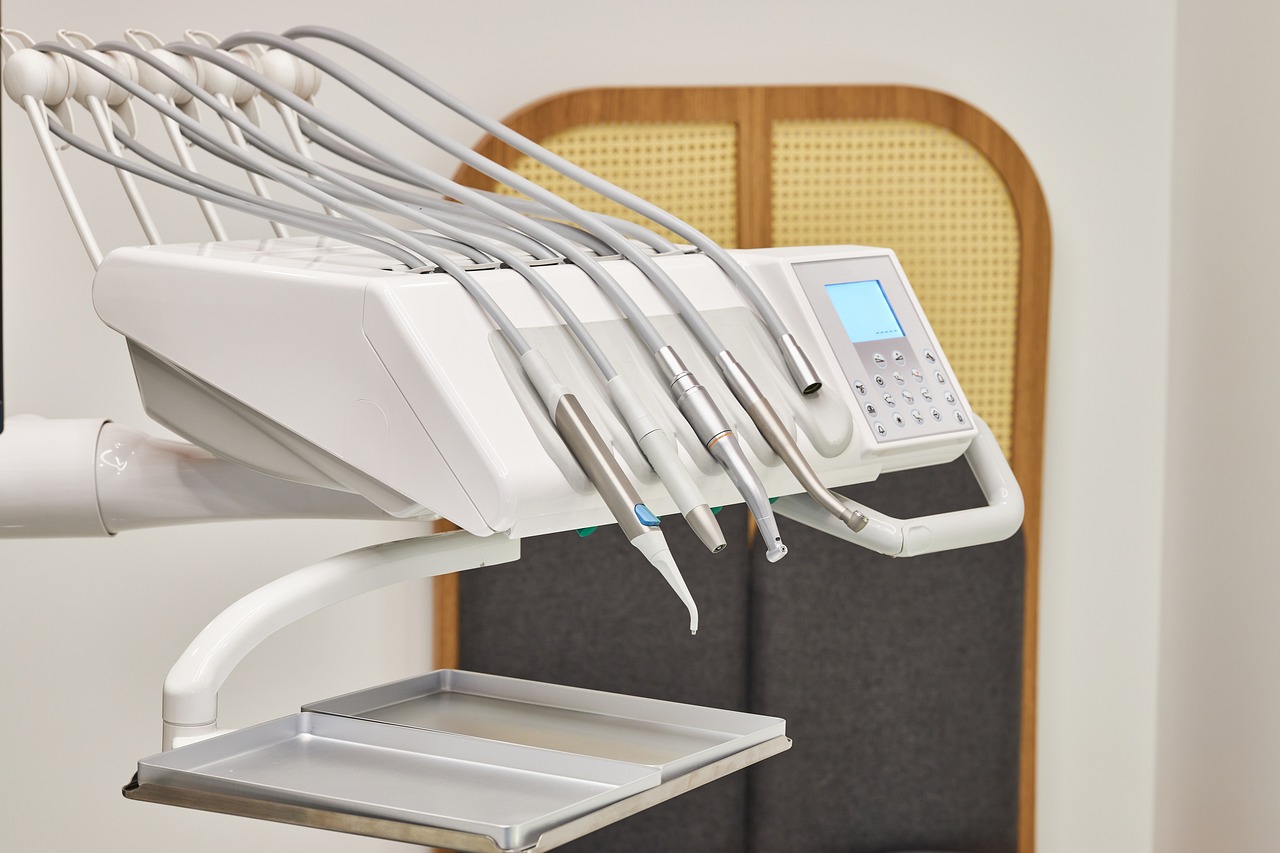
Signs Your Pet Needs a Dental Cleaning
Just like us, our furry friends can experience dental issues that, if left unchecked, may lead to serious health complications. It's crucial to be aware of the signs that indicate your pet might need a dental cleaning. Ignoring these signs could mean allowing plaque and tartar to build up, which can lead to painful conditions and even affect your pet’s overall health. So, how do you know when it’s time to book that dental appointment? Let’s dive into some common indicators that your pet may be in need of a thorough dental cleaning.
One of the most noticeable signs that your pet may need a dental cleaning is persistent bad breath. If your dog or cat has breath that could knock you off your feet, it’s more than just an unpleasant odor—it’s often a warning sign of underlying dental issues. This condition, known as halitosis, can indicate a buildup of bacteria in the mouth, which may lead to periodontal disease if not addressed. Think of it like this: if your pet's breath smells like something died, it's time to take action!
Another red flag to watch for is gum inflammation or discoloration. Healthy gums should be a nice shade of pink, but if you notice that they are red, swollen, or bleeding, it’s a clear indication that your pet may be suffering from periodontal disease. This condition can lead to pain and even tooth loss if left untreated. Always check your pet’s gums during your regular petting sessions; if something seems off, don’t hesitate to consult your veterinarian.
Have you noticed your pet being picky about their food or refusing to eat altogether? Changes in eating habits can be a significant indicator of dental problems. If your furry friend seems reluctant to chew or shows signs of discomfort while eating, it could be due to dental pain. Imagine trying to enjoy a meal with a toothache; your pet is likely experiencing something similar. Observing these changes can help you catch dental issues early, ensuring your pet stays happy and healthy.
In addition to these signs, there are a few other symptoms to keep an eye out for:
- Excessive drooling
- Facial swelling
- Pawing at the mouth
- Loose or missing teeth
If you notice any of these symptoms in your pet, it’s essential to seek veterinary care promptly. Early intervention can make a world of difference in your pet’s dental health and overall well-being.
Bad Breath as an Indicator
Have you ever caught a whiff of your pet’s breath and thought, “Wow, that’s something else!”? If so, you’re not alone. Persistent bad breath, or halitosis, is one of the most common signs that your furry friend may be facing dental issues. Just like how we wouldn’t ignore a foul odor from our own mouths, we shouldn’t overlook it in our pets. In fact, bad breath can be an early warning sign of underlying dental diseases that could lead to serious health problems if left untreated.
So, what causes this unpleasant breath? Well, it’s often due to the buildup of plaque and tartar on your pet’s teeth. When bacteria accumulate, they produce foul-smelling compounds that become increasingly noticeable. This is not just a cosmetic issue; it indicates that your pet may be suffering from dental disease, which can affect their overall health. If you think about it, ignoring bad breath is like ignoring a smoke alarm going off in your house. It’s a clear signal that something needs attention!
To help you understand the implications of bad breath, here’s a quick breakdown of what it might mean for your pet:
| Possible Causes | Potential Health Risks |
|---|---|
| Plaque accumulation | Gingivitis, periodontal disease |
| Tooth decay | Abscesses, tooth loss |
| Systemic diseases (e.g., kidney disease) | Severe health complications |
As you can see, bad breath can be more than just an annoyance. It can be a gateway to more serious health issues. If you notice that your pet’s breath has taken a turn for the worse, it’s time to act. A visit to the veterinarian can help identify the root cause and get your pet back on track to good health.
In conclusion, don’t just brush off bad breath as a normal part of having a pet. Instead, treat it as an important indicator of your pet’s dental health. Remember, regular dental check-ups and cleanings can help keep your pet’s mouth fresh and healthy, ensuring that they live their happiest, healthiest life possible!
Gum Inflammation and Discoloration
Gum inflammation and discoloration are serious indicators of your pet's dental health. If you notice that your furry friend's gums appear red, swollen, or even bleed when they eat or play, it's time to take action. Gum disease, also known as periodontal disease, is one of the most common dental issues in pets, and it can lead to severe complications if left untreated. Just like in humans, inflammation in the gums can signal an infection that might spread to other parts of the body, causing even more health issues.
When examining your pet's mouth, look for the following signs of gum problems:
- Red or Swollen Gums: Healthy gums should be a pale pink color. If you see any redness or swelling, it’s a red flag.
- Bleeding Gums: If your pet’s gums bleed during eating or brushing, this is a clear sign of gum disease.
- Discoloration: Gums that appear dark or have patches can indicate serious underlying health problems.
Ignoring these signs can lead to more than just bad breath; it can result in pain, tooth loss, and even systemic infections that affect your pet's heart, liver, and kidneys. In fact, studies show that pets with untreated gum disease are at a significantly higher risk of developing serious health conditions. Therefore, it is crucial to schedule a veterinary dental examination if you notice any of these symptoms. Your vet can provide a thorough cleaning and treatment, ensuring your pet's mouth—and overall health—stays in tip-top shape.
To help you understand the stages of gum disease, here's a brief overview:
| Stage | Description | Symptoms |
|---|---|---|
| Stage 1: Gingivitis | Early stage of gum disease, characterized by inflammation. | Red gums, slight swelling, no bleeding. |
| Stage 2: Early Periodontitis | Gums become more inflamed, and plaque begins to harden into tartar. | Bleeding when touched, persistent bad breath. |
| Stage 3: Moderate Periodontitis | Gum tissue begins to pull away from teeth. | Visible gum recession, increased bleeding, and pain. |
| Stage 4: Advanced Periodontitis | Severe damage to gum and bone structure. | Loose teeth, severe pain, and potential tooth loss. |
Regular dental check-ups and cleanings can prevent your pet from progressing through these stages. Just like a car needs regular maintenance to run smoothly, your pet's dental health requires consistent care. So, keep an eye on those gums—your furry friend’s health depends on it!
Q: How often should I have my pet's teeth checked?
A: It's recommended to have your pet's teeth checked at least once a year, but some pets may need more frequent visits depending on their dental health.
Q: Can I use human toothpaste for my pet?
A: No, human toothpaste contains ingredients that can be harmful to pets. Always use toothpaste specifically designed for pets.
Q: What are the signs of dental disease in pets?
A: Signs include bad breath, swollen gums, difficulty eating, and loose teeth. If you notice any of these, consult your veterinarian.
Q: Are dental chews effective?
A: Yes, dental chews can help reduce plaque and tartar buildup, but they should complement regular dental care, not replace it.
Changes in Eating Habits
When it comes to our furry friends, their eating habits can reveal a lot about their overall health. If you notice that your pet is suddenly hesitant to eat or shows a disinterest in their favorite meals, it’s time to pay attention. Changes in eating behavior can often be a red flag, indicating underlying dental issues that may be causing discomfort or pain. Just like when we experience a toothache, pets may avoid chewing or eating altogether if they are suffering from dental problems.
For instance, if your dog used to gobble up their food like it was the best thing since sliced bread but now takes a few nibbles and walks away, something is definitely amiss. This shift could stem from a variety of dental concerns, including tooth decay, gum disease, or even oral infections. It’s crucial to observe not just the quantity of food they consume, but also the manner in which they eat. Are they chewing with hesitation? Are they favoring one side of their mouth? These behaviors can provide vital clues about their dental health.
Additionally, you might notice your pet dropping food, or perhaps they are licking their lips more often than usual. These could be signs of discomfort and should not be overlooked. To help you better understand the significance of these changes, here’s a quick rundown of potential indicators:
- Reluctance to chew: If your pet is avoiding hard food or treats, it may indicate dental pain.
- Preference for softer food: A sudden switch to soft food can signal that your pet is struggling with their teeth.
- Weight loss: Unintentional weight loss due to decreased food intake can be a sign of serious dental issues.
It's important to remember that pets can’t voice their discomfort as we do. Therefore, as a responsible pet owner, you should be vigilant and proactive. If you observe any of these changes in your pet's eating habits, consider scheduling a veterinary appointment for a thorough dental examination. Early intervention can prevent more severe health issues down the line and ensure your beloved companion remains happy and healthy.
Benefits of Professional Dental Cleanings
When it comes to our furry companions, their health is a top priority, and one of the most overlooked aspects is their dental hygiene. Professional dental cleanings for pets offer a plethora of benefits that go beyond just a sparkling smile. Think of it as a spa day for your pet's mouth! By investing in regular dental cleanings, you're not only enhancing their oral health but also contributing to their overall well-being.
First and foremost, professional cleanings effectively remove plaque and tartar that accumulate on the teeth. Plaque is a sticky film of bacteria that can harden into tartar if not removed. Once tartar sets in, it becomes significantly harder to remove, often requiring specialized tools and techniques only available at a veterinary clinic. By having your pet's teeth cleaned professionally, you prevent the progression of dental diseases that can lead to painful conditions or even tooth loss.
Moreover, these cleanings allow for a thorough examination of your pet’s mouth, which is crucial for identifying potential issues early on. During the procedure, veterinarians can spot signs of periodontal disease, which is one of the most common health problems in pets. Early detection can save your pet from unnecessary pain and costly treatments down the road. Imagine catching a problem before it escalates—it's like finding a leak in your roof before it rains!
Another significant advantage of professional dental cleanings is the prevention of systemic diseases. Poor dental health can lead to bacteria entering the bloodstream, which may affect vital organs such as the heart, liver, and kidneys. This connection between oral health and overall health is critical. By ensuring your pet has regular dental cleanings, you are actively working to prevent these serious health issues. It’s a bit like maintaining your car; regular oil changes and check-ups keep it running smoothly and extend its lifespan.
Additionally, professional cleanings can help improve your pet's breath. If you've ever been greeted by a pet with bad breath, you know how unpleasant that can be! After a professional cleaning, your pet will not only feel better but also have fresher breath. This not only makes cuddles more enjoyable but also indicates a healthier mouth.
To sum it up, the benefits of professional dental cleanings for pets are vast and impactful. They include:
- Effective removal of plaque and tartar
- Early detection of dental diseases
- Prevention of systemic health issues
- Improved breath and overall comfort
Regular visits to the veterinarian for dental cleanings can be a game changer for your pet’s health. So, why not give your pet the gift of a healthy mouth and a happier life? After all, a healthy pet is a happy pet!
Q: How often should my pet have a dental cleaning?
A: It’s generally recommended that pets have professional dental cleanings at least once a year, but some pets may require them more frequently based on their dental health.
Q: Can I brush my pet’s teeth instead of getting professional cleanings?
A: While brushing your pet's teeth at home is important, it cannot replace the thorough cleaning and examination provided by a veterinary professional.
Q: What happens during a professional dental cleaning?
A: During a professional cleaning, your pet will be sedated, and the veterinarian will use specialized tools to remove plaque and tartar, followed by polishing the teeth and checking for any dental issues.
Q: Will my pet experience pain during the cleaning?
A: No, your pet will be under anesthesia during the procedure, so they will not feel any pain. Post-cleaning, some pets may experience mild discomfort, but this can be managed with pain relief medications.
Q: How can I maintain my pet's dental health at home?
A: Regular brushing, providing dental chews, and scheduling routine veterinary check-ups are excellent ways to maintain your pet's dental health at home.
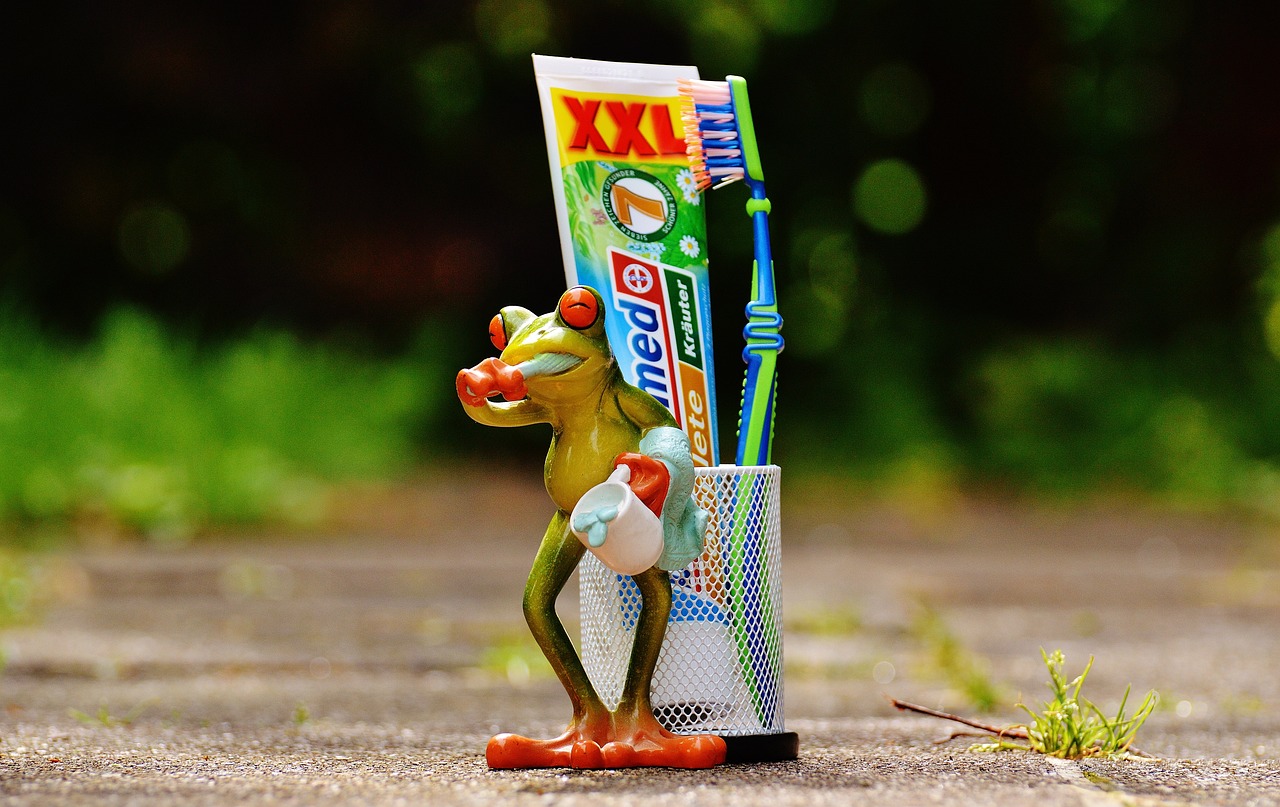
Home Dental Care Practices
Maintaining your pet's dental health at home is not just a good idea; it's essential for their overall well-being. Just like humans, pets can suffer from a variety of dental issues if their teeth and gums are not cared for properly. Regular home dental care can significantly reduce the risk of serious dental diseases, saving you both time and money in the long run. Think of it as a routine that keeps their smiles bright and their breath fresh! So, how can you ensure your furry friend has a healthy mouth? Let's dive into some effective home dental care practices.
One of the most effective ways to care for your pet's teeth is through regular brushing. Yes, you heard that right! Just like you brush your own teeth daily, your pet needs the same attention. Brushing your pet's teeth can dramatically reduce plaque and tartar buildup. You might be wondering how to go about it. Start by introducing your pet to the toothbrush and toothpaste gradually. Use a toothbrush designed for pets and a toothpaste specifically formulated for them—never use human toothpaste, as it can be harmful. Aim for at least two to three times a week, or ideally every day, to maintain optimal dental health. It may take some time for your pet to get used to this routine, but patience is key!
In addition to brushing, incorporating dental chews and toys into your pet's daily routine can be incredibly beneficial. These products are designed to help reduce plaque and tartar while providing your pet with the satisfaction of chewing. There are various types of dental chews available, including rawhide, kibble, and specially formulated treats. When selecting a dental chew, look for those approved by veterinary dental organizations, as they meet specific standards for effectiveness. Not only do these chews help maintain oral hygiene, but they also keep your pet entertained and engaged—it's a win-win!
Another fantastic practice is to schedule regular veterinary check-ups, which should include dental examinations. Your veterinarian can provide professional cleanings and identify any potential dental issues before they become serious. During these visits, they can also offer tailored advice on maintaining your pet's oral hygiene at home. Remember, prevention is always better than cure!
To wrap it up, here are some quick tips for effective home dental care:
- Brush your pet's teeth regularly.
- Use dental chews and toys to aid in oral hygiene.
- Schedule regular veterinary dental check-ups.
- Monitor your pet's eating habits and oral health.
By incorporating these practices into your pet's daily routine, you can ensure that their dental health remains a priority. After all, a healthy mouth contributes to a healthy life, allowing your furry friend to live their best life with a bright, happy smile!
1. How often should I brush my pet's teeth?
It's recommended to brush your pet's teeth at least two to three times a week, but daily brushing is ideal for optimal dental health.
2. Can I use human toothpaste on my pet?
No, you should never use human toothpaste on pets. It can contain ingredients that are harmful to them. Always use toothpaste formulated specifically for pets.
3. What are dental chews, and how do they help?
Dental chews are specially designed treats that help reduce plaque and tartar buildup while satisfying your pet's natural urge to chew. Look for products approved by veterinary dental organizations.
4. How can I tell if my pet needs a dental cleaning?
Signs that your pet may need a dental cleaning include persistent bad breath, swollen or discolored gums, and changes in eating habits. If you notice any of these symptoms, consult your veterinarian.
Brushing Your Pet's Teeth
Brushing your pet's teeth might sound like a daunting task, but it’s one of the most effective ways to maintain their dental health and prevent a host of oral diseases. Imagine how fresh and clean your own mouth feels after a good brushing; now think about how your furry friend feels when their mouth is neglected! Regular brushing can significantly reduce plaque buildup, which is a primary contributor to dental problems such as gingivitis and periodontal disease. So, how do you get started?
First and foremost, it's essential to choose the right tools for the job. You’ll need a toothbrush designed specifically for pets, which typically has softer bristles and a shape that fits comfortably in their mouth. Additionally, opt for toothpaste that is formulated for pets—human toothpaste can be harmful to animals due to its fluoride content. You can find a variety of flavors that your pet will love, from poultry to peanut butter!
Now, let’s talk technique. Start by getting your pet accustomed to the toothbrush and toothpaste. You might want to let them lick the toothpaste off the brush a few times to make it a positive experience. Once they’re comfortable, gently lift their lips and start brushing in small circular motions, focusing on the outside surfaces of the teeth where plaque tends to accumulate. It’s important to brush for at least two minutes, but don’t worry if your pet isn’t used to it at first; gradually increase the brushing time as they become more accustomed.
Here’s a quick tip: Make it a routine! For example, brushing their teeth at the same time every day can help your pet associate it with a regular part of their day, just like feeding or playtime. Consistency is key—aim for at least two to three times a week, if not daily, to ensure optimal dental health.
To give you a better idea of the benefits of brushing, here’s a simple comparison of pets that receive regular dental care versus those that don’t:
| Regular Dental Care | No Dental Care |
|---|---|
| Healthier gums and teeth | Increased risk of gum disease |
| Reduced bad breath | Persistent halitosis |
| Lower vet bills | Higher vet costs due to dental procedures |
| Better overall health | Potential systemic health issues |
In conclusion, brushing your pet’s teeth may require some effort and patience, but the long-term benefits are absolutely worth it. Not only does it help prevent dental diseases, but it also contributes to your pet’s overall health and happiness. Remember, a clean mouth leads to a happy pet!
- How often should I brush my pet's teeth? Aim for at least two to three times a week, but daily brushing is ideal.
- Can I use human toothpaste on my pet? No, human toothpaste can be harmful to pets. Always use toothpaste specifically designed for animals.
- What if my pet resists brushing? Start slowly, allowing them to get used to the toothbrush and toothpaste. Reward them with treats and praise to create a positive association.
Dental Chews and Toys
When it comes to keeping your pet's teeth clean and healthy, can be a game changer! Just like how we enjoy munching on crunchy snacks, pets also love to chew, and providing them with the right tools can help maintain their oral hygiene. These products are designed not only to satisfy your pet's natural chewing instincts but also to promote good dental health by reducing plaque and tartar buildup.
So, what exactly are dental chews and toys? They come in various shapes, sizes, and flavors, catering to different breeds and preferences. Some are specifically formulated to clean teeth, while others are made from durable materials that can withstand vigorous chewing. It's essential to choose high-quality products that are safe and effective. For instance, look for chews that have the Veterinary Oral Health Council (VOHC) seal of approval, as this indicates they meet specific standards for dental health.
Here are some benefits of incorporating dental chews and toys into your pet’s routine:
- Reduces Plaque and Tartar: Regular chewing can help scrape off plaque and prevent tartar from forming, which is crucial for avoiding periodontal disease.
- Freshens Breath: Many dental chews come infused with ingredients that help combat bad breath, making snuggles more pleasant!
- Strengthens Gums: Chewing can stimulate the gums, promoting better blood circulation and overall gum health.
- Provides Mental Stimulation: Chew toys can keep your pet entertained and engaged, reducing boredom and destructive behaviors.
When introducing dental chews and toys to your pet, it's important to monitor their usage. Always supervise your pet while they enjoy their chew, especially if it’s their first time. This ensures they don’t swallow large pieces or choke on them. Additionally, make it a part of their daily routine—just like brushing their teeth! You can set aside a specific time each day for chew time, making it a fun bonding experience.
In conclusion, dental chews and toys are not just a treat; they are an essential part of your pet's dental care routine. By investing in these products, you're contributing to your furry friend's overall health and happiness. Remember, a healthy mouth leads to a happy pet!
1. How often should I give my pet dental chews?
It's generally recommended to give dental chews a few times a week, but always check with your veterinarian for personalized advice based on your pet's needs.
2. Can I use human toothpaste to brush my pet's teeth?
No, human toothpaste can be harmful to pets. Always use toothpaste specifically formulated for pets.
3. Are all dental chews safe for my pet?
Not all dental chews are created equal. Look for products that are approved by veterinary dental associations and avoid those with artificial additives.
4. How can I tell if my pet's dental chews are effective?
You should notice improvements in your pet's breath, reduced plaque buildup, and healthier gums over time. Regular veterinary check-ups will also help assess their dental health.
Frequently Asked Questions
- Why is regular dental cleaning important for my pet?
Regular dental cleaning is crucial for your pet's overall health. Just like humans, pets can suffer from dental diseases that may lead to serious health issues if left untreated. Regular cleanings help prevent plaque buildup, reduce the risk of periodontal disease, and keep your pet's breath fresh.
- How can I tell if my pet needs a dental cleaning?
There are several signs that may indicate your pet requires a dental cleaning. Look out for persistent bad breath, swollen or discolored gums, and changes in eating habits. If your furry friend seems reluctant to chew or shows signs of discomfort while eating, it’s time to schedule a dental check-up.
- What are the benefits of professional dental cleanings?
Professional dental cleanings offer numerous benefits, such as the thorough removal of plaque and tartar that regular brushing might miss. They also help in identifying underlying dental issues early, ensuring your pet remains healthy and happy. Plus, a clean mouth can lead to a happier pet with a more pleasant breath!
- Can I brush my pet's teeth at home?
Absolutely! Brushing your pet's teeth at home is one of the best ways to maintain their dental hygiene. Using a pet-specific toothbrush and toothpaste, you can significantly reduce plaque buildup. Start slowly and make it a positive experience for your pet, and soon enough, it’ll become a routine.
- Are dental chews effective for my pet's dental health?
Yes, dental chews can be quite effective in promoting your pet's dental health. They help in mechanically removing plaque while your pet chews, which can complement regular brushing. However, they should not replace professional cleanings or brushing but can be a great addition to your pet's dental care routine.
- How often should my pet have a dental cleaning?
Most veterinarians recommend that pets have a professional dental cleaning at least once a year. However, some pets may require more frequent cleanings depending on their age, breed, and overall dental health. Regular check-ups will help determine the best schedule for your furry companion.


